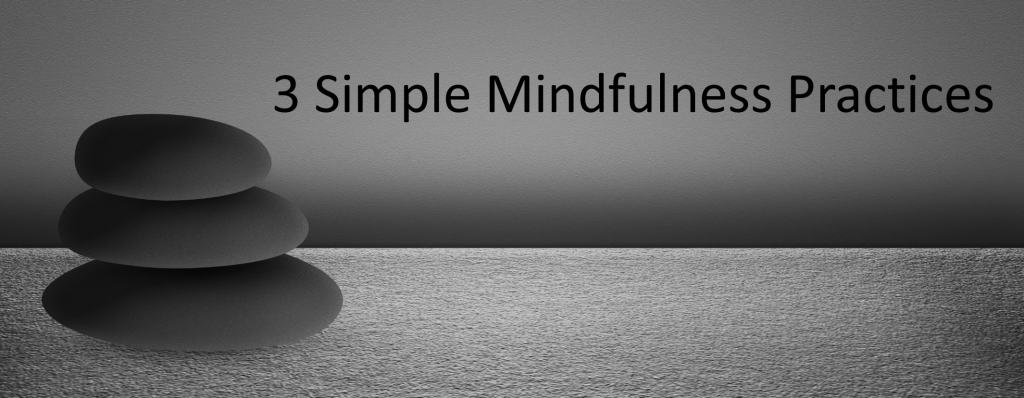Do you have a mindfulness practice? Are you familiar with the concept? Mindfulness is a set of techniques to draw your focus to the present moment. Research is showing more and more benefits of living a mindful life, including increased focus and concentration, a greater sense of well-being and happiness and much more.
While these practices are simple, they are not always easy. In our distracted, multi-tasking lives, it's easy to feel overwhelmed and overextended. Being more mindful can ease that burden. The more you integrate these into your day, the easier it will be for you to get in a more relaxed state. That's why they call it practice!
Whether you're a beginner or a more seasoned practitioner, here are three techniques to get you started.
1. Deep breathing. Some people get cranky when you tell them to "just breathe." It seems dismissive and disrespectful. But breathing is the most efficient and convenient mindfulness practice to reduce stress, decrease your heart rate and calm your mind.
Sit up in your chair with both feet on the floor and your hands resting on your legs or at your side. Breathe in and out of your nose, if possible. Pay attention to your breathing. Count the length of your inhale and exhale. Try to get each to a count of 5. Aim to take about 6 full breaths per minute. You may need to work up to this. (That's why they call it practice).
For an added boost, put your hand over your heart as you breathe, which releases the feel-good, love hormone, oxytocin. Isn't that amazing?
2. Focused attention. Building on deep breathing, you can use your breath to practice being more focused. Using focused attention can be restorative, calming and stabilizing, especially in times of stress.
Focus your full attention on the process of breathing. As you inhale, notice the cool, dry air entering your nostrils; as you exhale, notice the warm, moist air exiting. If your thoughts wander, gently but firmly bring your attention back to the breath.
Practice this for 2 minutes. Work up to 5, 10 or more!
3. Mindful Listening. Many of the conversations we have are filled with distractions. Cell phones, TVs, reactions to what the person is saying, thinking about the next thing you're supposed to be doing.
The next time you talk to someone, try to really listen. Hear every word. Listen to what's being said and how. Show you're listening through eye contact and facial expressions instead of words. See what happens when you start listening with undivided, non-judgmental attention.
Which of these 3 practices resonate for you? Try them every day and see if you notice a difference in your mood, your thoughts, your focus, or attention.
Do you have a mindfulness practice? Leave a comment to share yours, ask questions or just let us know how it's going.
Enjoy!


